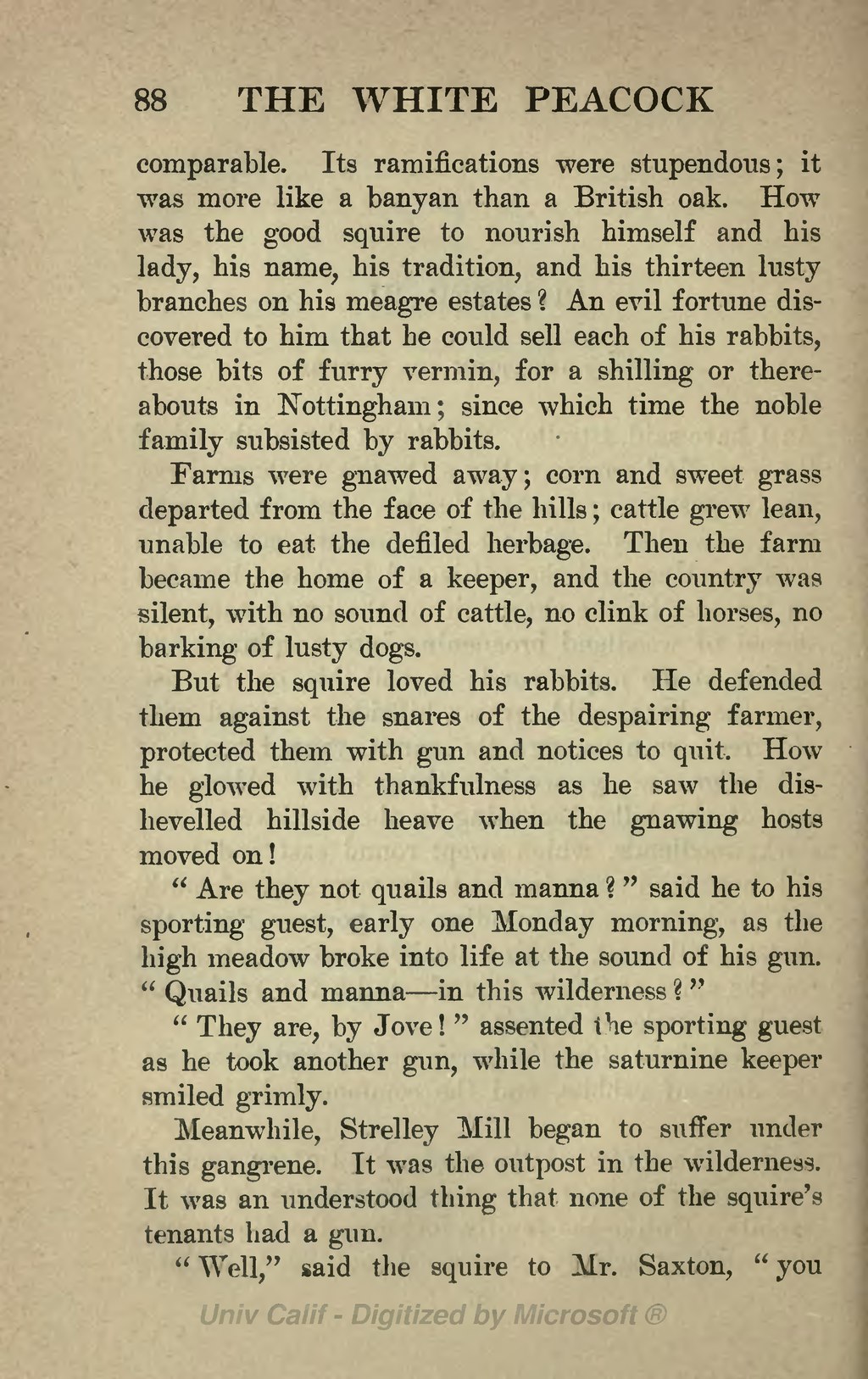comparable. Its ramifications were stupendous; it was more like a banyan than a British oak. How was the good squire to nourish himself and his lady, his name, his tradition, and his thirteen lusty branches on his meagre estates? An evil fortune discovered to him that he could sell each of his rabbits, those bits of furry vermin, for a shilling or thereabouts in Nottingham; since which time the noble family subsisted by rabbits.
Farms were gnawed away; corn and sweet grass departed from the face of the hills; cattle grew lean, unable to eat the defiled herbage. Then the farm became the home of a keeper, and the country was silent, with no sound of cattle, no clink of horses, no barking of lusty dogs.
But the squire loved his rabbits. He defended them against the snares of the despairing farmer, protected them with gun and notices to quit. How he glowed with thankfulness as he saw the dishevelled hillside heave when the gnawing hosts moved on!
“Are they not quails and manna?” said he to his sporting guest, early one Monday morning, as the high meadow broke into life at the sound of his gun. “Quails and manna—in this wilderness?”
“They are, by Jove!” assented the sporting guest as he took another gun, while the saturnine keeper smiled grimly.
Meanwhile, Strelley Mill began to suffer under this gangrene. It was the outpost in the wilderness. It was an understood thing that none of the squire’s tenants had a gun.
“Well,” said the squire to Mr. Saxton, “you
